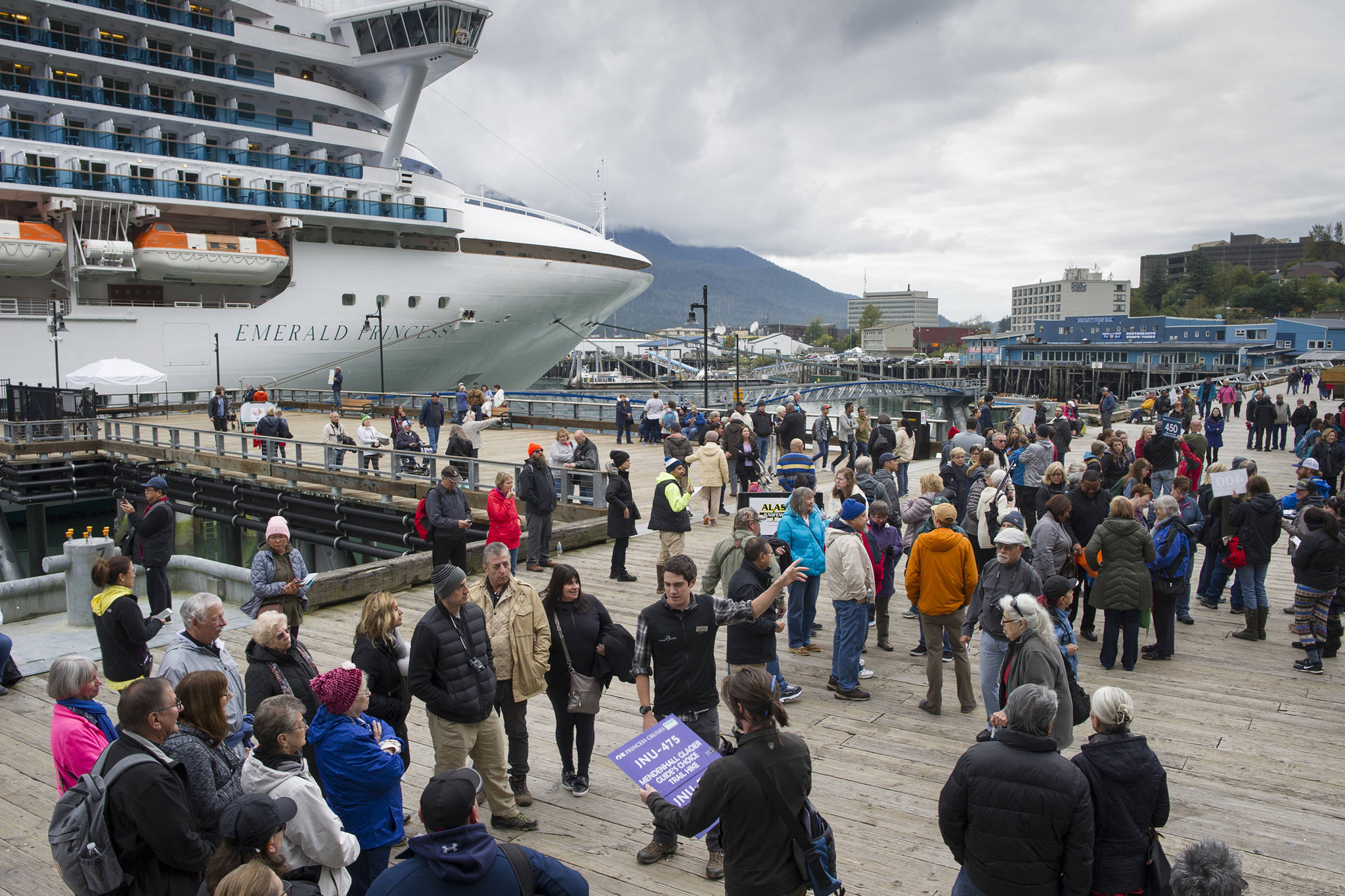A decision in a long-fought court case between the cruise industry and Juneau could have local ramifications for Seward, Homer and other cruise ports in Alaska.
U.S. District Court Judge H. Russel Holland ruled earlier this month that it’s constitutional for a city to collect head taxes, or fees from each cruise ship passenger, but they can only be used to benefit the cruise ships, not the public or cruise passengers.
“Passenger benefits are not relevant,” Holland wrote in his 35-page ruling. “The proper question as to each category of expenditure by the City and Borough of Juneau is: Does the expenditure provide a service to a vessel? If the answer is yes, the expenditure is constitutional.”
If the answer is no, Holland said the expenditure is unconstitutional under the Tonnage Clause of the U.S. Constitution which stops states from charging for a vessel’s cargo without providing a service to the boat.
The ruling will tighten up restrictions according to Seward’s City Attorney Will Earnhart of Birch Horton Bittner & Cherot, and could possibly impact the summer shuttle bus.
“It could be very problematic and I’d have to work with the administration,” Earnhart said. “We’ve got the shuttle going to the cruise ship dock when the ships are there and that’s its primary purpose. My reading of the case is that it’s probably OK, but that is a vast grey area. It depends on how incidental it is to the cruise ships or not, figuring that out.”
The city has budgeted $181,206 for the 2019 shuttle contract, but expects an additional amount to be added due to the increased number of cruise ships in 2019.
Seward receives funds through the Commercial Passenger Vessel Excise Tax (CPV), a shared revenue from the state. Since Seward is located within Kenai Peninsula Borough, the $5 passenger fee is split between the two — $2.50 for Seward and $2.50 for the borough. The borough makes their portion of the shared CPV revenue available to Seward and Homer, though, through grants.
In 2018, the city received $458,165 from the shared CPV revenue distribution. Since 2007, the city has received nearly $4.2 million in grants from the borough, according to city documents.
“The City of Seward uses CPV revenue for port and harbor infrastructure and passenger services,” according to the city. “Plans for future projects include ambulance services to cruise ships, safety and aesthetic improvements to the cruise ship pedestrian walkway, continued port and harbor infrastructure improvements, and cruise terminal amenities.”
How, and if, the use of Seward’s CPV revenue will be affected is still to be determined, Earnhart said, but the city hasn’t caused a stir with the cruise lines in the past.
“The nice thing is, we’re probably not the main target,” Earnhart said. “We don’t get as many ships and we haven’t been the bad offenders here, where the cruise ship people are asking ‘Hey, why do we have to pay these head taxes that have nothing to do with our operations?’”
Juneau could still appeal the case, but the cruise lines welcomed the ruling.
“We are pleased with the ruling and the clarity with which the judge detailed his opinion,” Cruise Lines International Association Alaska President John Binkley said in a statement. “Our primary goal was to seek guidance from the court so both the industry and communities understand the rules going forward.”
Reach Kat Sorensen at ksorensen@peninsulaclarion.com.


